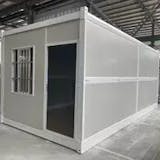The affordable housing crisis is a growing concern worldwide, with many people struggling to find cost-effective living solutions. Tiny homes have emerged as a viable and innovative option to address this issue. Their compact design, affordability, and sustainability make them an attractive alternative for individuals and families seeking affordable housing. In this article, we’ll explore five effective ways tiny homes are tackling the affordable housing crisis.
1. Cost-Efficiency
Lower Construction Costs
Tiny homes require fewer materials and labor to build, significantly reducing construction costs. This affordability makes them accessible to a wider range of people, including those with limited financial resources.
Reduced Utility Bills
With their smaller size, tiny homes consume less energy for heating, cooling, and electricity. This results in lower utility bills, making them a cost-effective living solution for budget-conscious individuals.
2. Sustainability
Eco-Friendly Building Materials
Many tiny homes are constructed using sustainable and recycled materials, minimizing their environmental impact. This eco-friendly approach appeals to those looking to reduce their carbon footprint.
Energy Efficiency
Tiny homes often incorporate energy-efficient appliances and systems, such as solar panels and composting toilets. These features reduce energy consumption and promote sustainable living.
3. Land Use Optimization
Utilizing Underutilized Spaces
Tiny homes can be placed on underutilized land, such as vacant lots or backyards, maximizing the use of available space. This efficient land use helps alleviate the pressure on urban housing markets.
Flexible Placement Options
Their small footprint allows tiny homes to be placed in diverse settings, from urban environments to rural areas, providing flexible and adaptable housing solutions.
4. Community Building
Tiny Home Villages
Communities of tiny homes, known as tiny home villages, are emerging as a collaborative solution to the housing crisis. These villages offer affordable housing options while fostering a sense of community and support among residents.
Social and Support Services
Many tiny home villages are integrated with social services, providing residents with access to essential resources, such as healthcare, education, and job training, enhancing their quality of life.
5. Promoting Minimalist Lifestyles
Encouraging Financial Freedom
Living in a tiny home encourages a minimalist lifestyle, reducing the need for excessive possessions and fostering financial freedom. This lifestyle shift allows individuals to save money and focus on what truly matters.
Reducing Living Expenses
Tiny homes promote a simpler way of living, with lower living expenses and maintenance costs. This financial relief is particularly beneficial for those struggling with the high costs of traditional housing.
Conclusion
Tiny homes offer a practical and innovative solution to the affordable housing crisis. By providing cost-efficient, sustainable, and community-focused living options, they help address the pressing need for affordable housing. As the popularity of tiny homes continues to grow, they represent a promising avenue for tackling housing challenges and promoting a more sustainable and affordable future.









